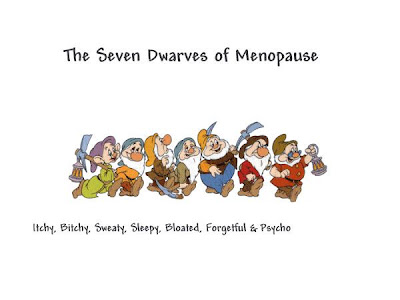Thursday, October 28, 2010
Rich Girlfriends and AIA Asia IPO
That's not the big news, not even Kuwait's $1bn investment in the IPO. There were some juicier news about some of the other IPO bidders.
The Standard / Mandy Lo
Thursday, October 28, 2010
 |
The big-ticket subscriptions by the girlfriends of Chinese Estates (0127) chairman Lau account for more than 50 percent of AIA's retail tranche, sources told The Standard.
And their personal bids to grab such a huge portion of the public offering could well be a world record. The women - Yvonne Lui Lai-Kwan and Chan Ho-wan - have emerged as the biggest potential investors, trouncing large fund houses.
The subscriptions, made separately as their "personal investments," add up to a staggering HK$11.2 billion.
Rumors are rife that the subscriptions were applied for by Lau, but his spokesperson denied the reports and declined to comment further.
Lui and Chan were the biggest retail subscribers for AIA, each accounting for almost 50 percent of the retail portion.
The two women will be allotted at least HK$509.6 million worth of shares each - 9.1 percent of their total subscription, the source said.
They could each post a paper gain of HK$50.96 million if AIA shares rise 10 percent on their trading debut tomorrow, as they did earlier this week in the gray market for institutional investors.
As lovers of Lau, who frequently invests in listing candidates, it is no surprise that Lui and Chan are testing their luck with AIA.
But the huge amount involved has drawn intense market attention. There is speculatio
 |
Lui gave birth to a boy in August, after having a daughter in 2003, while Chan gave birth to a girl in 2008.
Lau has invested in numerous large IPOs including Agricultural Bank of China (1288), Sinopharm Group (1099) and Evergrande Real Estate Property (3333).
AIA, the Asian arm of American Insurance Group, priced its IPO at the top of its range at HK$19.68.
It seeks to raise funds to repay bailout debts owed by parent company AIG to the US government. AIA starts trading tomorrow.
AIA's total fund-raising size, including institutional and retail tranches, was boosted by 20 percent to HK$138 billion from HK$115.27 billion after the warm market response.
The insurer's IPO is set to become the third largest in the world.
Tuesday, October 26, 2010
How Do You View Kuchai Developments

To note, the company owns a shophouse at Emerald Hill Road, Singapore. In addition, KUCHAI has a 26% equity stake Sg. Bagan.
Sg. Bagan owns and cultivates approximately 2,600 acres of oil palm plantation in the District of Machang, Kelantan. Sg. Bagan is also engaged in the long term portfolio investment in securities.
|
Funnily enough, for a sleepy counter like Kuchai this would be the second time I am writing about the stock. Back in March I wrote on a few companies that presents itself as a 'value trap', lol. Good to read again:
------------------------
Kuchai Development
Its basically a holding company. Its got a substantial stake of 26% in palm oil Sg Bagan and a highly attractive 3m shares of Great Eastern (traded now btw S$15-16). All in the total net asset value for Kuchai Development is around RM260m. It has 120.7m shares (50 sen), which makes for a NAV of RM2.15. Guess what's the share price??? Its just 80 sen. How to go wrong?
Technically you have to outlive the owners or wait till they finally decide to do something with their shares. When looking at a value company, the first thing to check is the shareholdings level. For Kuchai:
Kluang Rubber 41.9%
Sg Bagan 9.38%
Lee Foundation 4.18%
Kota Trading 1.77%
The top 3 are basically the same group of people and they made doubly sure they have more than 50% as that will stop anyone thinking of raiding the company. So if someone comes along and collect shares and then make a G.O. at RM1.60, he/she will not succeed as long as the controlling shareholders do not sell. They will probably sell if someone comes along and offer a substantive premium to NAV, say RM2.60-2.80 or thereabouts. The value is in the NAV and then the listing vehicle as a value add.

Once the owner controls more than 50%, there's very little you can do. If you can locate a value company and there is ample free float, plus the controlling shreholder holds less than 40%, then I bet you that many vultures will be cirlcling to take over the company, thus narrowing the gap between NAV and the share price.
It might be OK to hold on forever if the company pays a decent dividend, but in Kuchai's case it paid 0.8 sen in 2008 and 0.45 sen in 2009. If you take the share price of 80 sen, that works out to be a paltry dividend yield of 1% and 0.56%. Really no incentive to own this stock.
I really think that there is a strong case for the SC to come down hard on Kuchai because it does not resemble a normal company with on-going businesses. Its strictly a holding company. It does NOT allow shareholders to participate in the growth of the company, it just holds the stakes forever. It does NOTHING to extract value from their inherent value. Some may say so is Berkshire Hathaway - in Buffett's case, he actively manages his positions, positions will be sold once they reach above fair value and vice versa. Kuchai's position makes a mockery of being a listed counter - anyone in their right mind would be 100x better off to invest directly into Great Eastern or Sg Bagan - there is absolutely no value to its existence.
--------------------
After my posting 6 months back, this might be the trigger for something big. Kuchai does not really move into speculative or syndicate plays. One day could be an aberration but 3 or 4 continuous days would mean something else. If I was the controlling shareholder, and I want to streamline my holdings. I will be doing a General Offer. RM285m / 120m ~ RM2.37 or thereabouts.

Hence a G.O. would have to be close to the NAV. Your guess is as good as mine, RM1.80 to RM2.10 could be reasonable. I find it hard to think of any other reason for the price movements other than a G.O. Other possibilities could be selling their 26% in Sg. Bagan, which is close to realising the full value of the company anyway.
This is not a recommendation in any way, just trying to make sense of the stock movements. Kuchai is helmed by very rich people, no syndicate play is likely or necessary. If I were to make a wild and outrageous guess ... how about ... using Kuchai as the backdoor listing vehicle for Great Eastern Malaysia???!!! Just an absolutely wild guess, but they have the "same shareholders" really!
Why then the assiduous collection? Answer that, you could have a profitable trade here.

Monday, October 25, 2010
How To Spot A Good Trade - Part 5

Yes, haulage, containers, shipping, vessels ... all are still struggling to recover from slowdown. Hence if you point to someone about a stock in those industry, its not going to generate much enthusiasm. I know zilch about the stock, but managed to gather 6 different research reports on Alam Maritim (all issued over the last 2 months).
I looked at the chart after seeing a significant jump in volume, which, if you go back 12 months, you would not find a similar jump. Then there is the news submitted by the company on an MOU signed with Yayasan Sabah. OK, now got to check if there was a run over the past few weeks so you are not trapped by a sell on news scenario. Look at the chart, very clean, cannot see any assiduous accumulation anywhere. This got interesting.

Checked the various analyst reports. All issued prior to the Yayasan news.
Kenanga - 1HFY10 net profit of RM38.1m came in at a dismal 34% of our forecast and consensus due to softer earnings from Offshore Marine Vessels (OMV) and Underwater Division, which is on stand-by pending delivery of the pipelay barge expected to be in September 2010.
Vessel chartering revenue came from 29 vessels (total 32 vessels) which have been contracted out and together with a special contract for a work barge (chartered from 3rd party). However, the work barge’s low margin from high 3rd party charter rate contributed the 9% decline in OMV’s operating profit margin.
The decline in Underwater division’s revenue (-58%) and operating profit (-115%) was due to deliberate idling of some of the assets ahead of the delivery of the pipelay barge so as to avoid being caught between jobs.
Pipelay barge is expecting a charter rate of up to RM100k per day but no contract secured at this juncture as management is still in the midst of contract bidding. YoY, YTD net profit of RM38.1m was 25.6% lower on the back of c.7% decline in OMV division’s revenue and 24.4% decline in underwater water’s division.
Underwater division contributed mere RM31.0m revenue as oppose to c. RM41.0m in IHFY09. Promising quarters ahead. OMV division is also anxiously waiting for the remaining two AHTS deliveries within the year under the 49:51 JV with Lembaga Tabung Haji worth USD121.5m, bringing to total six. No prospective contracts secured as yet, but the much anticipated domestic upstream contracts to be awarded in 2HFY10 should help to sustain fleet utilisation especially newbuilds.
Revising FY10 net profit downward by 6% from RM111.5m to RM105m and FY11 by 4% from RM112m to RM108m as we factor in lower contribution from the Underwater division due to the idling time. Downgrade to HOLD with revised target price of RM1.06 based on 8x FY11 FD EPS 13.2sen. Although we remain positive on Alam’s prospects in view of upcoming new builds (AHTS and pipe-lay barge) and sustained utilisation, we are cautious at this juncture until contracts are secured.
Maybank Research - Cut TP to RM1.15 (-28%). We expect Alam’s next two quarterlyperformances to mirror 2Q’s. Tenders for vessels are building up but most of the contracts are only expected to be realised in 4Q.

Alliance - JVs with Swiber and Pacfic Crest to anchor earnings going forward. Recall, Alam has earmarked an estimated RM100m capex (Alam’s 50% portion under the Swiber JV deal) for the acquisition of a 300 men accommodation pipelay work barge. The remaining balance is for the purchase of 2 remote operating vehicle (ROVs) equipment and a dive set.
Separately early this month Alam has entered into a joint venture agreement with Pacific Crest Pte Ltd to purchase an accommodation work barge. Both these ventures are expected to anchor earnings going forward. Alam’s growth driver beyond FY10 will be largely underpinned by contribution from its JV partners as well as an estimated 70% of its vessels are locked in on long term charter rates. Specifically only an estimated 6 vessels and 4 vessels would be due for renewal in 2010 and 2011 respectively out of a total of 32 vessels.
Maintain Buy. Our target price is RM1.48 based on 10x FY11 EPS.
OK, the research is all over the place. Now let's look deeper into the announcement: The MOU was entered into, to record the understanding of the Parties;
a. to collaborate and form a joint venture company to be involved in,
(i) the provision of offshore installation construction, including pipeline replacement, pipeline repairs, shoreline approach, export facilities and offshore facilities;
(ii) the provision of offshore marine operations, including platform supply vessels and other specialized vessels particularly for deepwater operations;
(iii) the provision of subsea works, including commercial diving and remotely-operated vehicles, (all these hereinafter referred as Services) to the energy industry in Sabah;
b. to co-own strategic assets required for the provision of the Services such as offshore construction assets (including a pipe-lay barge) subject to mutually agreed terms; and
c. to facilitate the localisation and transfer of oil and gas-related technology into Sabah.

While its still at MOU stage, the jv looks to be a highly significant venture to Alam Maritim's bottomline. Why, you might ask. Let's look at what Yayasan Sabah is all about: YSS is a wholly owned subsidiary of Yayasan Sabah Group, a private limited company incorporated in Malaysia. Yayasan Sabah Group has significant investments in various industries in Sabah.
Having been successful in timber, agro-plantation sector and oil palm, the Group has recently identified oil and gas sector as another key economic area to be developed in the State. YSS has been identified to lead the State Governments thrust in tapping this fast-growing sector.
Scope of the MOU
AMRB and YSS have agreed to enter into the MOU to set out their non-binding responsibilities, obligations, intentions and mutual understanding in connection with their interest in developing the oil and gas opportunities in Sabah waters. The way I look at it, Alam Maritim is locked at the lower end of valuations owing to a sluggish industry recovery. Hence pricing wise its not expensive. It might not be the sector exposure you want to be in right now, you might be a tad early. Or if you believe Alliance research piece alone, on its current ops, its worth RM1.48 already. Throw in the MOU, I think its a highly significant boost should it come through. Take it together with the share price / volume movements yesterday, I like it a lot.
NOTE: The above opinion is not an invitation to buy or sell. It serves as a blogging activity of my investing thoughts and ideas, this does not represent an investment advisory service as I charge no subscription or management fees (donations are welcomed though). The content on this site is provided as general information only and should not be taken as investment advice. All site content, shall not be construed as a recommendation to buy or sell any security or financial instrument. The ideas expressed are solely the opinions of the author. Any action that you take as a result of information, analysis, or commentary on this site is ultimately your responsibility. Consult your investment adviser before making any investment decisions.
Forum For Technical Chartists

Just doing my friends a favour here, if you are technically inclined, if you have lost hope on reading/predicting the markets via fundamentals ... this may be for you.
Day 1- Schedule
Here is the proposed schedule for Day 1, Saturday, Oct 30, 2010
Please come early to register and pay at the door. We expect a large crowd on that day.
A 2-DAY EVENT FOCUSES ON KLSE STOCKS, FKLI FUTURES & COMMODITIES AND U.S MARKETS.
Day 2- Schedule
Here is the proposed schedule for Day 2, Sunday, Oct 30, 2010:
A 2-DAY EVENT FOCUSES ON KLSE STOCKS, FKLI FUTURES & COMMODITIES AND U.S MARKETS.
There are 3 types of ticket fee available:
1) Special Invitation Fee (For TTR Subscribers, Book Buyer, Invitees, TG Users): RM 288 per pax
Early Bird Special Discount Cash (Bank-in before Oct 26, 2010) : RM 288 per pax
2) Public, general audience and walk-in fee : RM 358 per pax
3) Master the Markets Main Course Graduates Only : RM 188 per pax (Those graduates who attended Main Course Workshop conducted by Bill & Martin).
The convention spans over 2 days.
Registered and paid participants will receive a copy of Tom Williams’ Master the Markets Book – An introduction to Volume Spread Analysis (VSA).
Please take note: There’s a special session for TradeGuider Malaysia Buyers on Friday morning, Oct 28, 2010 at our office at Phillip Capital Management, K.L . The session time details will be announced soon.
To register for the 2 days event, please type in your name, email and contact number below.
If you have any queries, you can email to martinwong@traderstruthrevealed.com or call 016 322 3386.
Sunday, October 24, 2010
Kuan yew's Oktoberfest With Spiegel
SPIEGEL's Interview with Lee Kuan Yew
"It's Stupid to be Afraid"
Singapore's first-ever prime minister, long-time government head and current political mentor Lee Kuan Yew talks about Asia's rise to economic power, China's ambitions and the West's chances of staying competitive.
Every shipping line is trying to get into association with a Chinese container port. India is slower because their infrastructure is still to be completed. But I think they will join in the race, build roads, bridges, airports, container ports and they'll become a manufacturing hub. Raw materials go in, finished goods go out.

Mr. Lee: It's stupid to be afraid. It's going to happen. I console myself this way. Suppose, China had never gone communist in 1949, suppose the Nationalist government had worked with the Americans -- China would be the great power in Asia -- not Japan , not Korea , not Hong Kong, not Singapore . Because China isolated itself, development took place on the periphery of Asia first.
Mr. Lee: A motor car is a commodity -- four wheels, a chassis, a motor. You can have modifications up and down, but it remains a commodity, and the Chinese can do commodities.
Mr. Lee: No. I see ten bitter years. In the end, the workers, whether they like it or not, will realize, that the cosy European world which they created after the war has come to an end.
SPIEGEL: How so?
Mr. Lee : The social contract that led to workers sitting on the boards of companies and everybody being happy rested on this condition: I work hard, I restore Germany 's prosperity, and you, the state, you have to look after me. I'm entitled to go to Baden Baden for spa recuperation one month every year. This old system was gone in the blink of an eye when two to three billion people joined the race -- one billion in China , one billion in India and over half-a-billion in Eastern Europe and the former Soviet Union .
Venezuelan President doesn't like America . They are going to Iran for oil and gas. So, they are not asking for a military contest for power, but for an economic competition.

Prime Minister Junichiro Koizumi. There is this return to "we want to be a normal country." They are sending ships to Afghanistan to support the Americans, they sent a battalion to Iraq , they reclaimed the Senkaku islands, and most recently, they joined the Americans in declaring that Taiwan is a strategic interest of Japan and America. That raises all the historical memories of the Japanese taking away Taiwan in 1895. Then they're applying to be a permanent member of the Security Council. So, I think the Chinese decided that this is too much. So, they have openly said they will object to Japan becoming a member of the Security Council.
SPIEGEL: Who can stop them? The Americans?

The interview was conducted by editors Hans Hoyng and Andreas Lorenz.
Translated from the German by Christoper Sultan / 2005
Saturday, October 23, 2010
The Miele Guide, Asia's Best Restaurants
1. Iggy's, Singapore
2. L'Atelier de Joel Robuchon, Hong Kong, China
3. Robuchon a Galera, Macau, China
4. Jaan, Singapore
5. Antonio's, Cavite, Philippines
6. Mozaic, Bali, Indonesia
7. Zuma, Hong Kong, China
8. Cilantro Restaurant & Wine bar, Kuala Lumpur, Malaysia
9. L'Atelier de Joel Robuchon, Tokyo, Japan
10. Caprice, Hong Kong, China
Singapore restaurant Iggy's reclaimed its crown as the top dining spot in Asia in the third annual edition of a regional dining guide which saw a Malaysian restaurant make the top 10 for the first time.
Iggy's run by restaurateur Ignatius Chan topped the list of Asia's 20 best restaurants in the 2010/2011 Miele Guide, knocking last year's top choice, L'Atelier de Joel Robuchon in Hong Kong, into second place. Iggy's topped the inaugural list in 2008/2009.
Celebrity chef Robuchon saw his three Michelin-starred Robuchon a Galera in Macau retain its third-place listing in the guide, which covers 450 restaurants in 17 countries. The Parisian chef's Tokyo venue shot up to number 9 from 20 last year. China had the most restaurants in the top 20 with eight -- six of them in Hong Kong -- followed by Singapore, with five, reflecting which parts of the region are recovering fastest from the recent economic crunch.

"I think restaurants had a hard time last year. I'd go into some places and see only corporate customers," said Aun Koh, director of Ate Media, the Singapore-based company that publishes The Miele Guide.
"But they're coming back now. I think Singapore and Hong Kong have bounced back really well, but I still worry about Japan."
Cilantro Restaurant & Wine Bar in Kuala Lumpur became the first Malaysian restaurant to make the top 10.
A rise in restaurants opened by big-name foreign chefs across the region, especially in Singapore, has helped spur local chefs on to new efforts, Koh said.
"There's been a lot of pressure on chefs and restaurants to keep standards high consistently. They think, 'I'm going to compete with these guys now,' it's pushing them to get better."
The Miele Guide was created in 2008 to better recognize Asia's best chefs and restaurants, and is selected after several rounds of public voting and judging by experts.
Like last year, Robuchon's Tokyo restaurant was the only Japanese entry in the top 20 even though Japan as a whole had the greatest number of restaurants in the guide, with 56.
Koh attributed this to an overabundance of success that meant votes were split. In addition, many of Japan's better restaurants have nearly "cult" status and might not be as well known to casual visitors, especially from other countries.
Overall, he said, the guide tended to show that Asians place a high value on physical comfort when eating good food -- not surprising given the climate in much of the region.
"You can go to a lot of these restaurants in jeans and a nice shirt, but you don't have a snooty waiter looking down at you," he said.
The 17 countries in the guide are Brunei, Cambodia, China, India, Indonesia, Japan, Korea, Laos, Malaysia, Myanmar, Nepal, Philippines, Singapore, Sri Lanka, Taiwan, Thailand and Vietnam.
Friday, October 22, 2010
Thursday, October 21, 2010
Lion Forest Industries, Exceptional Deep Value, Unlocking Value At The Same Time
Can people do the math? The number of shares is 250m, hence the sale is worth RM1.84 per share. Realistically, its Silverstone tyres is a tough business. The disposal is to Japan’s Toyo Tire & Rubber Co Ltd. Correction here as they have sold their Sabah Forest Industries in 2007.
In FY10, the tyre division turned in revenue and EBIT of RM578mil and RM46mil, respectively.
This paves the way for the group to exit the Malaysian tyre industry at a fairly attractive price. Based on its audited figures as at June 30, 2010, SB’s profit after tax and net asset value stood at RM34mil and RM286mil, respectively – translating into an exit PE and P/BV of 14x and 1.6x, respectively.
LFIB further revealed in its announcement that the estimated gain on disposal is around RM140mil. For the year ended June 2010, Lion FIB registered a net profit of RM163.7m. Silverstone contributed just RM46m, which means there is still RM117.7m profit, even though the bulk of it was extraordinary. The market cap at RM2.20 = 250m x 2.2 = RM550m. Cash from Silverstone is RM462m (of course have to pay down some debt). Gains from disposal RM140m = RM0.56.
Chance for a grand generous dividend is high and considering its NTA of RM4.68 per share, this should be a great stock for value funds to accumulate all the way to RM3.00. If I follow the share correctly, the "managers of the stock" tend to let the share price find its way following a good announcement, just go back and track the chart/announcements trend. They will only "act" a few days after the volatility has subsided. Just take note of their spectacular earnings announcement, and my write up date... it moved only a week later, but what a move.
OSK: Potential special dividend of RM1.38 per LFI share. In order to gauge the potential dividend payout by LFI, we must first compute the potential net cash proceeds that LFI may receive upon completion of the disposal. SCB has issued bonds, for which the Net Present Value (NPV) stood at approximately RM320m and are currently fully owned by LFI. Thus the bond will obviously be redeemed prior to any cash distribution by SCB.
The remaining cash will also be used to pay for advisory fees and other expenses before being distributed back to its shareholders. Adding the proceeds from the bond redemption by SCB to LFI and a 84% share of the balance, we suspect the amount available for distribution would be about RM400m.
Tracking the disposal of Sabah Forest Industries SB (SFI) by LFI in 2007, the subsidiary made a total dividend payout of RM2 per share, or 78.8% of the total proceeds, after excluding the RM363.4m set aside in an Escrow account for the litigation claims against SFI.
Assuming a payout of 80% from the cash proceeds received from LFB, the special cash dividend may come to RM1.38 per share, with a dividend payable to Lion Industries of as much as RM233.6m. The remaining 20% will likely be retained for SCB and LFI to search of a new core business as the group will left with its tyre manufacturing operation in China and trading of building material plus petroleum based products, which only generate nominal earnings.
-------------------------------------
August 24, 2010
There is earnings recovery, and then there is distinctive earnings recovery. There are still a number of issues which troubles the stock but overall its a concerted recovery over the past 18 months. Time for a major rerating. Its not a business I particularly like or fancy, just a trade in rerating.
A good indication of firmer footing, the company also declare a 2 sen dividend after paying nothing for sometime.
I only manage to get a report by RHB Research. This was dated February 2010, and their estimates have been surpassed, plus they had a target price of RM1.80. I am sure they would be revising that a bit higher now.
RHB Research:
Outlook. We remain positive on LFIB’s earnings outlook and on the back of:
1. The change in the National Automotive Policy in end-Oct that introduced incentives for local autoparts manufacturers, which is positive for SCB’s motorcycle parts and accessories business; and
2. Our projected total industry vehicle (TIV) sales volume growth of 8.5% in 2010, which will boost sales volumes at LFIB’s tyre manufacturing division;
and
3. The implementation of the two stimulus packages that will boost demand for building materials.
Earnings forecasts. We are raising our FY06/10-12 net profit forecasts by 43.4-51.5% to RM56.3m, RM62.0m and RM65.3m respectively, to reflect higher sales volume at the tyre manufacturing division.
♦ Investment case. Following the upward revision in our net profit forecasts, indicative fair value is raised by 43.9% to RM1.80 based on 7x revised CY2010 core EPS of 25.7 sen. Upgraded from underperform to Outperform as valuation has become attractive.
| ||||||||||||||||||||||||||||||||||||||||||||||||||||||||||||||||||||||||
| ||||||||||||||||||||||||||||||||||||||||||||||||||||||||||||||||||||||||

NOTE: The above opinion is not an invitation to buy or sell. It serves as a blogging activity of my investing thoughts and ideas, this does not represent an investment advisory service as I charge no subscription or management fees (donations are welcomed though). The content on this site is provided as general information only and should not be taken as investment advice. All site content, shall not be construed as a recommendation to buy or sell any security or financial instrument. The ideas expressed are solely the opinions of the author. Any action that you take as a result of information, analysis, or commentary on this site is ultimately your responsibility. Consult your investment adviser before making any investment decisions.































